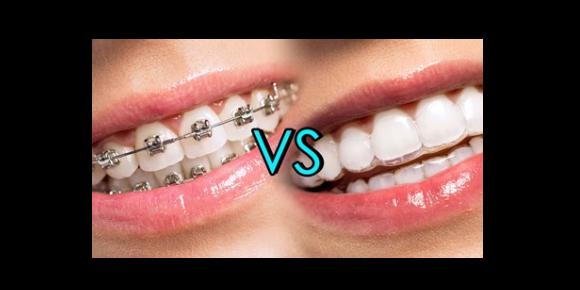What Patients with Health Concerns Should Know Before Starting Clear Aligners
Clear aligners like Invisalign have made orthodontic treatment more accessible and comfortable than ever. However, if you have pre-existing medical conditions, your Invisalign treatment plan may need special adjustments or precautions. Understanding how your overall health affects dental movement is crucial for a safe and successful outcome.
In this article, we’ll explore the most common medical conditions that may impact Invisalign treatment and how orthodontists adapt care to meet each patient’s unique needs.
🧠 Why Medical History Matters in Orthodontics
Your mouth is part of a larger biological system. Certain health conditions can:
- Affect bone density or healing capacity
- Increase risk of gum inflammation or infection
- Influence how teeth respond to pressure from aligners
This is why your orthodontist will thoroughly review your medical and dental history before designing your Invisalign treatment plan.
⚠️ Common Medical Conditions That May Affect Invisalign
1. Gum Disease (Periodontitis or Gingivitis)
Patients with active periodontal disease may not be ideal candidates for Invisalign until the condition is under control.
Impact:
- Inflamed or receding gums may not provide stable support for tooth movement.
- Movement of teeth in compromised bone can worsen the disease.
Precautions:
- Periodontal treatment is typically done before starting Invisalign.
- Regular monitoring with a periodontist may be recommended during aligner therapy.
2. Diabetes
Diabetes—especially when poorly controlled—can affect gum health, bone density, and healing.
Impact:
- Higher risk of gum infections during treatment.
- Slower tissue healing and bone remodeling may affect treatment speed.
Precautions:
- Ensure diabetes is well-managed before beginning.
- Increased focus on oral hygiene and regular cleanings.
- Shorter aligner change intervals may be adjusted to reduce pressure.
3. Osteoporosis and Bone Density Issues
Osteoporosis or medications like bisphosphonates (used for bone loss) can influence tooth movement.
Impact:
- Weakened jawbone may respond differently to orthodontic pressure.
- Risk of root resorption or delayed movement.
Precautions:
- A dental X-ray or CBCT scan may be needed to assess bone health.
- Orthodontists may apply lighter forces or extend treatment time to reduce risk.
4. Temporomandibular Joint Disorder (TMJ or TMD)
Jaw joint disorders can cause pain, clicking, or limited jaw movement.
Impact:
- Invisalign aligners may initially aggravate symptoms in some patients.
- Misalignment of the bite may contribute to TMJ issues.
Precautions:
- TMJ assessment is recommended prior to treatment.
- Invisalign may actually help relieve symptoms in some cases by improving bite alignment.
- Aligner design can be adjusted to avoid worsening the condition.
5. Autoimmune Disorders (e.g., Rheumatoid Arthritis, Lupus)
Autoimmune conditions can cause inflammation in joints, connective tissue, and even gums.
Impact:
- Medication side effects (like dry mouth or delayed healing) can complicate treatment.
- Increased gum sensitivity and inflammation risk.
Precautions:
- Treatment may need to be coordinated with your primary physician or rheumatologist.
- More frequent dental checkups and gentle treatment protocols may be advised.
6. Bruxism (Teeth Grinding or Clenching)
Involuntary grinding or clenching can impact tooth position and stress aligners.
Impact:
- Can crack or wear down aligners.
- May lead to discomfort or uneven tooth pressure.
Precautions:
- Invisalign trays can provide a mild protective effect, similar to a nightguard.
- Severe cases may require aligner reinforcement or special night-time precautions.
7. Allergies to Dental Materials
Some patients have sensitivity or allergic reactions to plastics or resins.
Impact:
- Rare, but possible sensitivity to aligner materials.
Precautions:
- Inform your provider of any material allergies.
- Invisalign and many clear aligners are BPA- and latex-free.
- A patch test or material alternative may be offered.
🩺 Medications That May Influence Treatment
Some prescription medications may affect the Invisalign process, including:
| Medication Type | Potential Effect on Invisalign Treatment |
|---|---|
| Bisphosphonates (e.g., Fosamax) | Affects bone turnover, slows tooth movement |
| Steroids | Can weaken gum and bone tissue |
| Immunosuppressants | May increase infection risk or slow healing |
| Anticonvulsants (e.g., phenytoin) | May cause gum overgrowth |
| Antidepressants (some types) | Can cause dry mouth, which increases oral risk |
👨⚕️ How Orthodontists Adjust Your Invisalign Plan
If you have a medical condition, your orthodontist may adapt your treatment in several ways:
- Slower movement rate with longer wear time per tray
- Shorter check-up intervals to monitor progress and health
- Collaboration with other healthcare providers (e.g., endocrinologist, periodontist)
- Use of additional appliances or hygiene protocols
- Post-treatment retainers that accommodate long-term health needs
✅ Tips for Patients with Medical Conditions
- Be honest about your medical history during your orthodontic consultation.
- Keep all healthcare providers informed about your orthodontic treatment.
- Maintain excellent oral hygiene to minimize complications.
- Don’t skip follow-up visits—they’re essential for adjusting the plan if needed.
- Watch for unusual symptoms like increased sensitivity, gum swelling, or delayed tooth movement.
📝 Final Thoughts
Having a medical condition doesn’t automatically exclude you from Invisalign treatment—but it does mean your plan must be carefully tailored. With the right precautions and communication between you and your provider, clear aligner treatment can still be safe, effective, and transformative.




